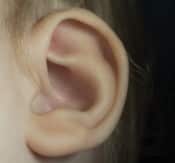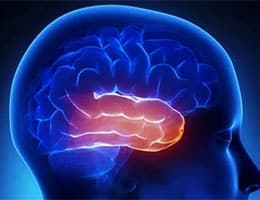 The term lobe comes from the scientific Latin lobulus . The first meaning mentioned by the Royal Spanish Academy ( RAE ) in its dictionary refers to the sectors that stand out on the edge of some element.
The term lobe comes from the scientific Latin lobulus . The first meaning mentioned by the Royal Spanish Academy ( RAE ) in its dictionary refers to the sectors that stand out on the edge of some element.
The earlobe , for example, is the non - cartilaginous fragment found in the lower area. Also called a knob , this lobe is usually pierced for the placement of hoops (earrings or earrings).
Lobe, on the other hand, is the prominent and rounded portion of any organ . In the brain , to cite one case, it is possible to recognize several lobes.
The frontal lobe is linked to reasoning, movement, emotions and language. The occipital lobe , meanwhile, is related to the generation of images. The parietal lobe is responsible for sensory perception, while the temporal lobe performs functions associated with coordination and balance . As you can see, the various brain lobes are very important for the body.
There is a health problem called a temporal lobe seizure . Its symptoms may be related to some of its functions, such as the processing of emotions and short-term memory, since it causes abnormal sensations such as euphoria, fear and déjà vu .
Another name by which this disorder is known is focal seizures with altered consciousness . Although some people retain awareness of what is happening around them, in more intense cases this is much less likely, despite the impression it makes on the observer. During the attack, repetitive and meaningless movements of the hands and mouth can also be seen.
It is known that a temporal lobe seizure can originate from a defect or injury, but in many cases the precise cause is not known. Medication is the most common measure to treat it; Patients who do not respond adequately to drugs often undergo surgery.
As a warning, so to speak, a strange sensation called an " aura " may occur before a temporal lobe seizure. This is the phase that occurs before loss of consciousness and usually manifests itself in some of the following ways:
* an unexpected feeling of joy or fear for no apparent reason;
* déjà vu , that is, the feeling of having experienced what is happening in the present before;
* a taste or smell that is difficult to describe and appears suddenly;
* a sensation similar to that caused by vertigo, which rises from the abdomen.
In some cases, the temporal lobe seizure negatively impacts the patient's ability to communicate with other people. This can last anywhere from a few seconds to two minutes, and its most common symptoms are the following:
 * absences;
* absences;
* the patient smacks his lips;
* loss of notion of the environment;
* chewing and swallowing repeatedly;
* strange movements with the fingers.
After a crisis, the following may occur:
* excessive sleepiness;
* difficulties speaking;
* confusion;
* not being aware of having had a seizure or what happened during it.
The lungs also have lobes. In the case of the right lung, it has three lobes (the lower lobe , the middle lobe and the upper lobe ), one more than the left lung (which only has the lower lobe and the upper lobe ). The reason for this difference is that, due to the inclination of the heart, the left lung has less volume.
The liver , finally, shows two main lobes (the left lobe and the right lobe ) and two other minor ones (the caudate lobe and the quadrate lobe ). For some scholars, however, these last two lobes are actually part of the left lobe.
